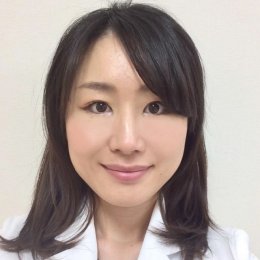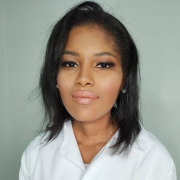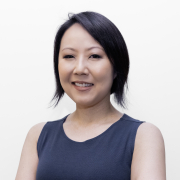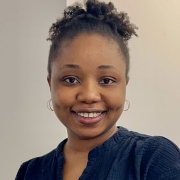- How did you become interested in research relating to Hypertension and Cardiovascular Disease?
My specialty is nephrology. When I entered the Graduate School of Medicine at Ehime University, my mentor gave me a research project: to study whether renal fibrosis caused by aldosterone via osteopontin was mediated by interleukin-18 or not.
Therefore, my recent study has led me to the world of hypertension research, from my background in nephrology. I never expected to research hypertension as a nephrologist but I am excited to be doing so now.
- Describe your research & the program/lab (info of your supervisor) that you are in?
Our department at Ehime University is involved in cardiology, pulmonology, nephrology and hypertension. So we can choose our own research project from a very wide field. Our department has a research head in each speciality, so we can learn from their expertise.
My supervisor is Dr. Takafumi Okura, who is the chief of nephrology and hypertension in our department. His research themes are the renin/aldosterone system, apoptosis of cardiology systems, and arteriosclerosis.
- What do you consider to be your substantial scientific contribution so far (provide Pubmed PMID if possible)?
One of my most substantial scientific contributions is in the process of being published, so I cannot talk about it now in detail.
I have reported at an international conference that Thrombin cleaved osteopontin plays an important role in acute kidney injury of ischemia-reperfusion model mice. I also reported a case of acquired lecithin:cholesterol acyltransferase deficiency with sarcoidosis that remitted spontaneously (DOI: 10.1007/s13730-016-0223-4).
I would like to continue studying hypertension and I am excited to make further contributions.
- What is your favourite manuscript from a lab or mentor other than your own (provide Pubmed PMID if possible)?
One of my favorite manuscripts was written by Dr. Bani-Hani AH et al: “IL-18 neutralization ameliorates obstruction-induced epithelial-mesenchymal transition and renal fibrosis” (PMID:19536084). I was very inspired by their great ideas. After I read their paper, I changed my method of measuring the renal cortex interleukin-18 protein expression.
When I hit a wall, I try to remember there must be a researcher who hit the same wall before me, so they can help me through their experience.
- Where do your research strengths lie? Why? What are your research weaknesses? How will you improve?
My research strengths lie in our interdisciplinary study environment here at Ehime University. My research team is very good to work with, and my mentor has led me to a significant research goal by combining my nephrology expertise with my mentor’s cardiology, nephrology, and hypertension expertise. We have opened up a promising line of research.
My research weaknesses also lie in my work situation. I work as a medical doctor and a researcher at a small regional hospital, rather than a famous urban university. So I am in charge of my own research project. Because of this work situation, I have to work carefully to catch any mistakes. But sometimes I can’t find a mistake or realize a technique is not the right one. In order to solve this problem, I reach out to my colleagues in my department who work under different specialties (like cardiology or pulmonology) if I am hitting a wall. Though our specialized field is different, we cooperate as a team to study well. I get new and different viewpoints from them every day.
- Describe your unforgettable (proudest) moment in science, and the most challenging situation that you have had to overcome (lessons learnt) so far?
My proudest moment is when I was honored with the young investigator award at Hypertension Summit 2016 at Kyoto.
My hardest situation was the first time I had to present at an international conference in English, because I hadn’t had the chance to speak English so often. The lesson learnt from that experience is to ‘Lay up for a rainy day’. I realized I needed to work on my English so I would always be ready to present. Because of that, I have been taking a personal English lesson a week since I entered graduate school.
- At which conference did you first present? How was your experience?
My first presentation was a case presentation during my medical internship at a Shikoku meeting of The Japanese Society of Internal Medicine.
I had not been given any presentation training at that point, and like many other Japanese people, I’m nervous to present and debate in public. But my mentor, Dr. Taro Kamimura, who is the newest director of the kidney center of Matsuyama Red Cross Hospital, taught me how to present and debate. Thanks to his kind teaching, I was honored with the award of Intern Encouragement Prize in the meeting. It is still hard for me to present in public, but I make use of what I learned and do my best.
- How did you learn about ISH/NIN and its activities?
I learned about ISH/NIN when I attended the ISH/ESH joint meeting in Greece in 2014.
- What area(s) do you wish to specialize in the future?
I wish to specialize in nephrology and hypertension in the future.
I am really interested in renal pathological change due to various causes. I would like to know why and how these changes occur, and how that knowledge can be applied to new medical treatments.
- Who is your role model in Science? Why?
Dr. Janet D. Rowley is my role model in Science. She is a great physician as well as a novel researcher. I would like to work both as a clinician and a researcher, so I wish I was a multitalented person like her! I also admire Professor Touyz, the recent president of the ISH. She is a very active research leader and has deep knowledge and humanity.
- What are your scientific goals? Advise for talented emerging scientists?
One of my scientific goals is to become a good nephrologist who can treat patients at a variety of stages, whether they are suffering from an abnormal urinalysis or a chronic kidney disease, by using the latest medical research evidence. To treat these problems, it is important to control hypertension as a major risk factor of target organs’ dysfunction.
To other talented emerging scientists, I don’t know you well, but you should find a good team to work with and a mentor who believes in you!





















